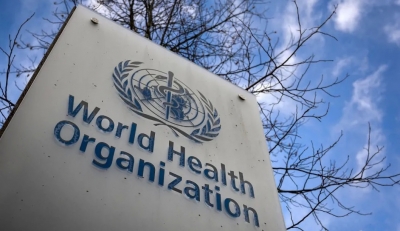WHO urges cross-border aid delivery between Turkey, Syria
By IANS | Published: February 15, 2023 06:51 AM2023-02-15T06:51:02+5:302023-02-15T07:15:22+5:30
Copenhagen, Feb 15 The World Health Organization (WHO) has urged governments and civil society to work together to ...

WHO urges cross-border aid delivery between Turkey, Syria
Copenhagen, Feb 15 The World Health Organization (WHO) has urged governments and civil society to work together to ensure cross-border delivery of humanitarian aid between Turkey and Syria and within Syria itself.
The WHO's Regional Director for Europe, Hans Kluge, called the earthquakes "the worst natural disaster" in the region in a century, and emphasised the importance of all parties cooperating on aid delivery, Xinhua news agency reported.
"The needs are huge, increasing by the hour. Some 26 million people across both countries need humanitarian assistance," said Kluge during a press conference on Tuesday.
Turkey has suffered cataclysmic casualties, Kluge underlined, with more than 31,000 deaths and 100,000 people injured due to the earthquakes. An additional one million people are estimated to have lost their homes, and are currently living in temporary shelters.
Meanwhile, almost 5,000 people have died in northwest Syria across the border, and the death toll is expected to rise.
The WHO also warned that there were growing concerns over health risks related to cold weather, hygiene and sanitation, and the spread of infectious diseases. Meanwhile, with 80,000 people currently hospitalized, the Turkish health system, is under enormous strain after suffering significant damage in the disaster.
The WHO has launched an appeal for $43 million to help with the earthquake response, and Kluge said this amount was likely to double in the coming days due to the huge scale of need.
According to Kluge, the funds would be used to assist the most vulnerable by providing trauma care, essential medicines, and mental and psychosocial support. They would also be used to ensure the continuity of routine health services.
Disclaimer: This post has been auto-published from an agency feed without any modifications to the text and has not been reviewed by an editor
Open in app